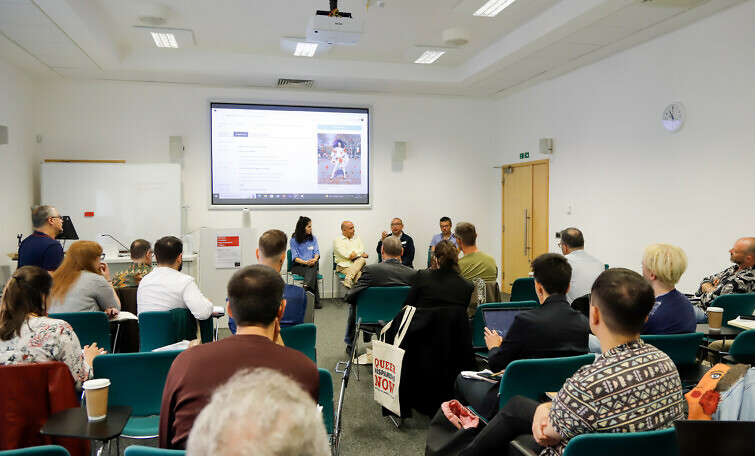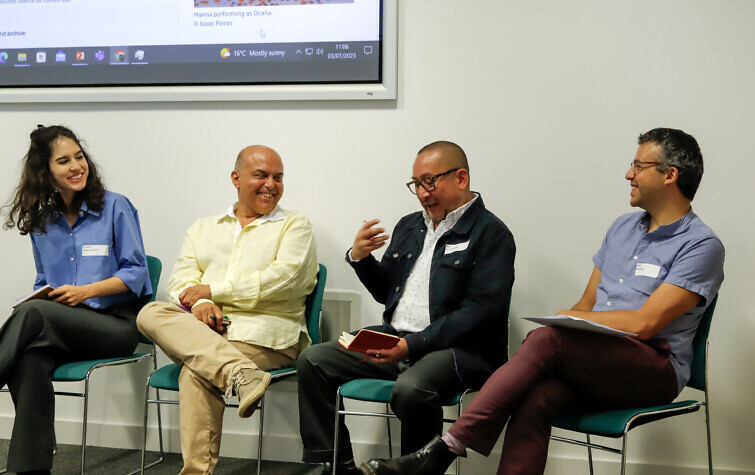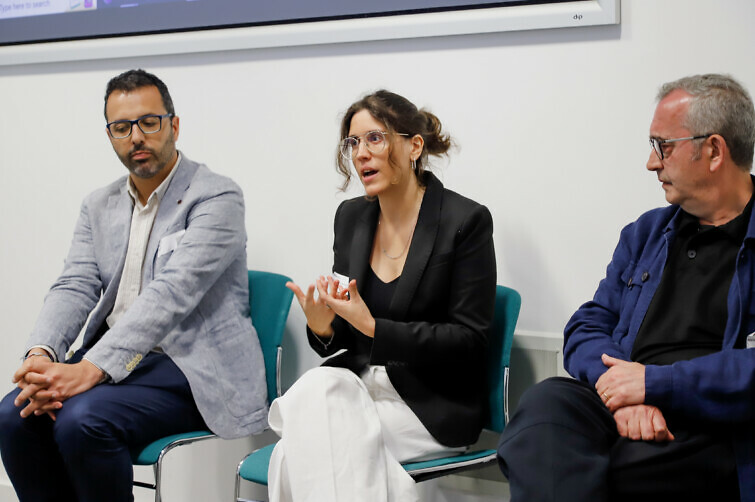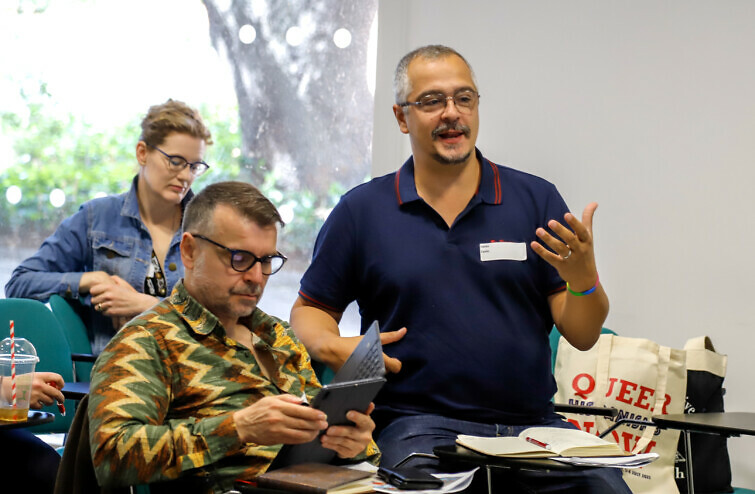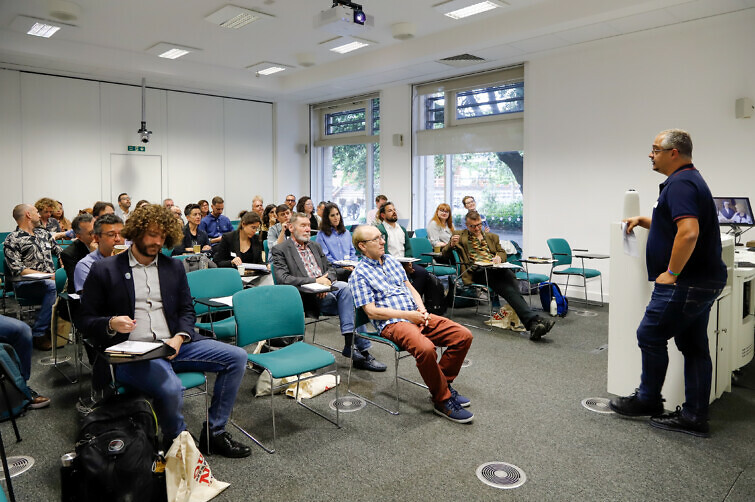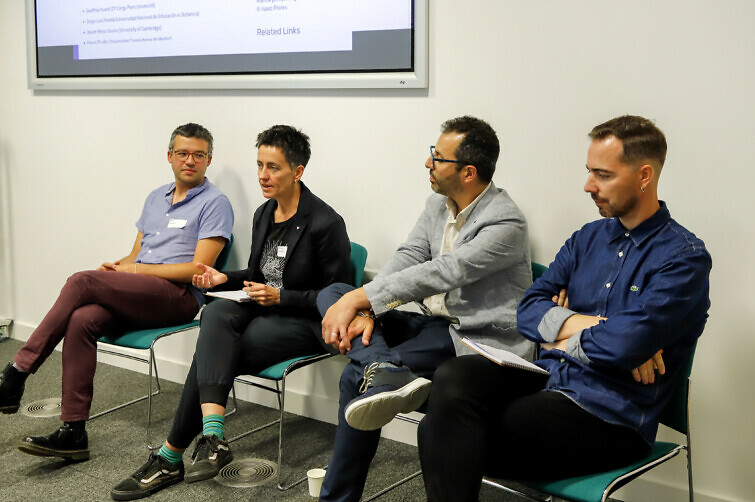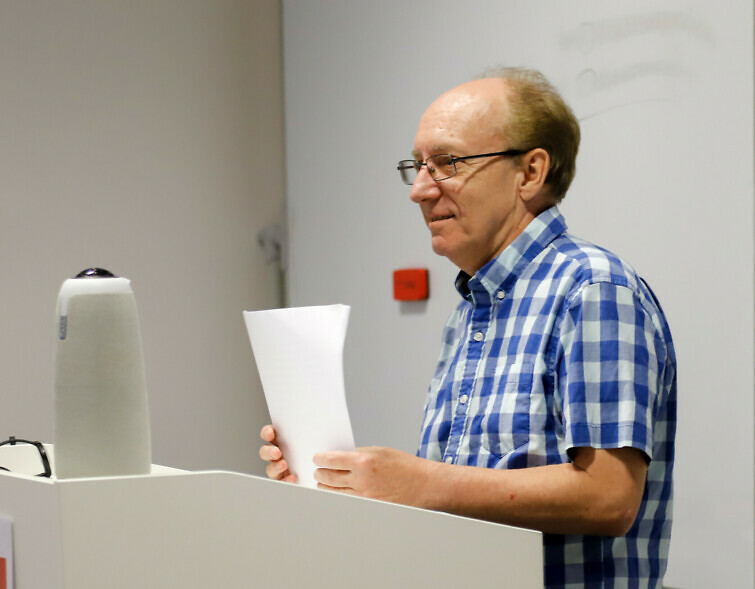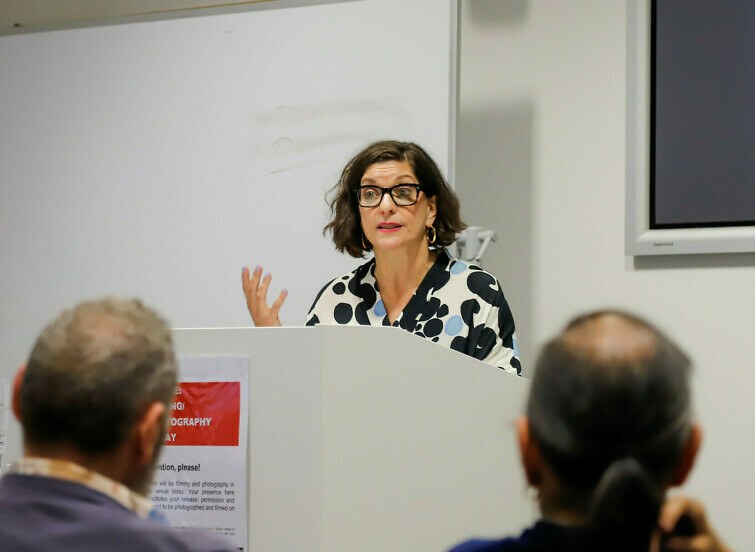Convenors Isaias Fanlo and Javier Pérez-Osorio look back on their conference Queer Hispansism Now, held in July 2023.
It has been a few months since we celebrated the long-awaited conference Queer Hispanisms Now, but the echoes of our joyful and rich academic encounter still resound. Aware that queerness is, among many other things, change, we gathered to consider the modulations, mutations, and deviations of queer thinking from the Hispanic world. Featuring keynote lectures by celebrated scholars and with several panels curated around current critical debates on Queer Studies, the conference fulfilled the organisers’ original aim: it is time to think about Queer Hispanisms now!
Our keynote speakers, Paul Julian Smith and Juana María Rodríguez, took the stage to unravel the complexities of contemporary queer thought within the Hispanic world. Their talks delved into crucial aspects of the discipline. Smith presented a timely paper entitled ‘Queer Mexicans in Madrid’, a fascinating comparative analysis between Latin American and Spanish filmmakers such as Pedro Almodóvar and Manolo Caro. The talk was a perfect example of the transnational spirit of the conference. On the other hand, Rodríguez presented her most recent book, Puta Life: Seeing Latinas, Working Sex (Duke University Press, 2023), in which she probes the ways that sexual labour and Latina sexuality become visual phenomena. Drawing on state archives, illustrated biographies, documentary films, photojournalistic essays, graphic novels, and digital spaces, she presented the figure of the puta – the whore, that phantasmatic figure of Latinised feminine excess – as a critical category of analysis.
The conference was also a celebration of diversity and fresh perspectives. Our panels, featuring both established and young scholars, showcased the global nature of queerness in literature, visual cultures, and social sciences. Hailing from the UK, Europe, Australia, and Latin America, our presenters explored a range of critical debates, from Race, Class, and Disability to Time, Space, and Memory, among others. The discussions were vibrant, passionate, and, yes, many of them in Spanish, adding an extra layer of authenticity to our academic exploration of queerness across the Hispanic world.
As a captivating addition to the conference programme, attendees were treated to a mesmerising performance titled ‘Des-espera’ by Les Impuxibles, a Dance, Music, and Theatre company based in Barcelona. The dance-theatre piece, thoughtfully designed for unconventional spaces (performed at Fitzwilliam College’s Auditorium), navigates the delicate boundary between a living and an unfinished composition. The performance explores the concept of living in contradiction and embracing it as a pathway to growth. With two opposing performers navigating five musical pieces, the performance draws scenes with the body, gesture, and word, contributing to the overall aim of the conference programme.
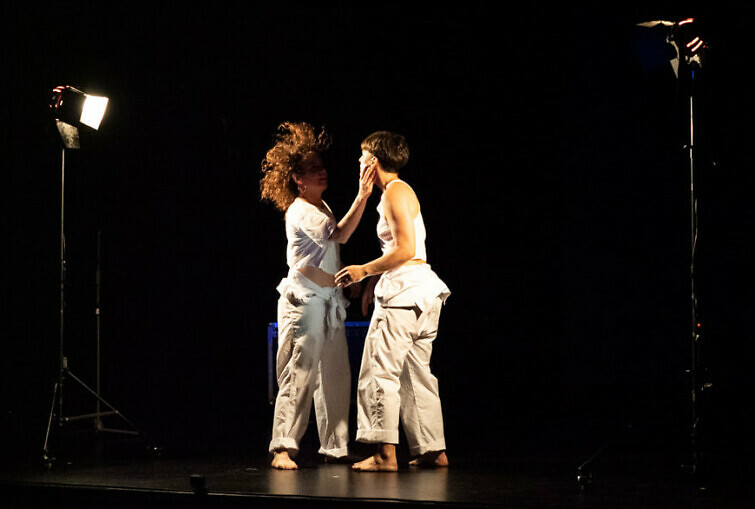
Image ©Henry Sorribas
As the dust settles, we invite you all to keep reflecting on the key questions that animated our discussions. How has Hispanic Queer Studies evolved beyond its initial socio-cultural focus? What new paths have emerged, fostering connections across diverse territories and cultures within an ever-expanding field? Even though our answers might always be in the making, the resounding call is the same: let us keep thinking about Queer Hispanisms. We are convinced that the conference was not just a moment in time, it was a call to action, urging us all to contribute to an ongoing dialogue that goes beyond the Hispanic world and reaches global stages.
Finally, we would like to thank all those who made the conference possible: the Faculty of Modern and Medieval Languages and Linguistics, the Centre for Research in the Arts, Social Sciences and Humanities (CRASSH), The University of Cambridge Centre for Gender Studies, Q+ Cambridge, Fitzwilliam College, The project “Memorias de las masculinidades disidentes en España e Hispanoamérica” funded by the Spanish Government, Institut Ramon Llull, and the generosity of professor Brad Epps.
Keynotes
Photography © Judith Weik

